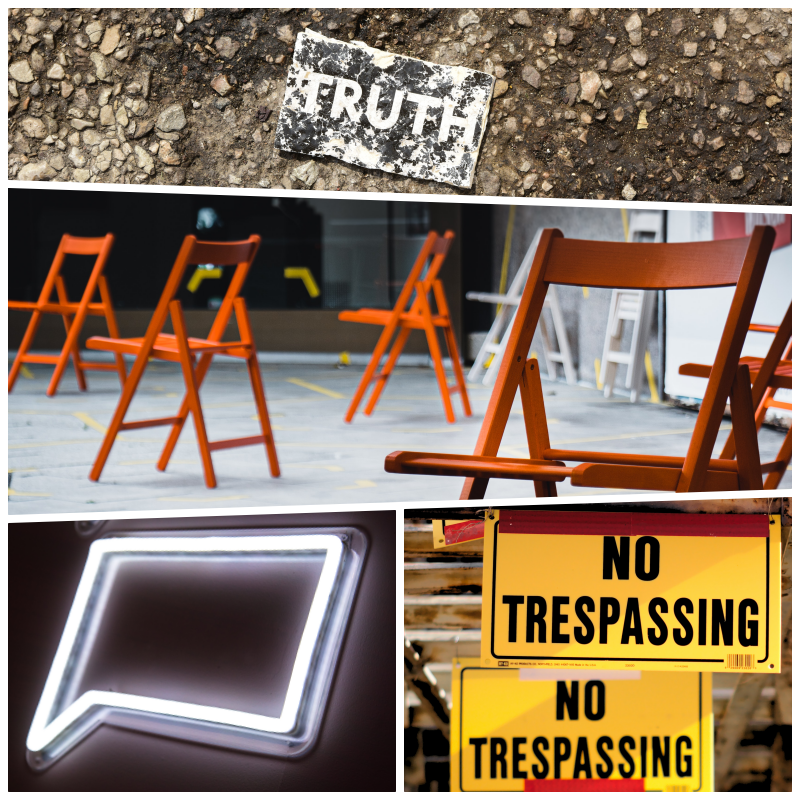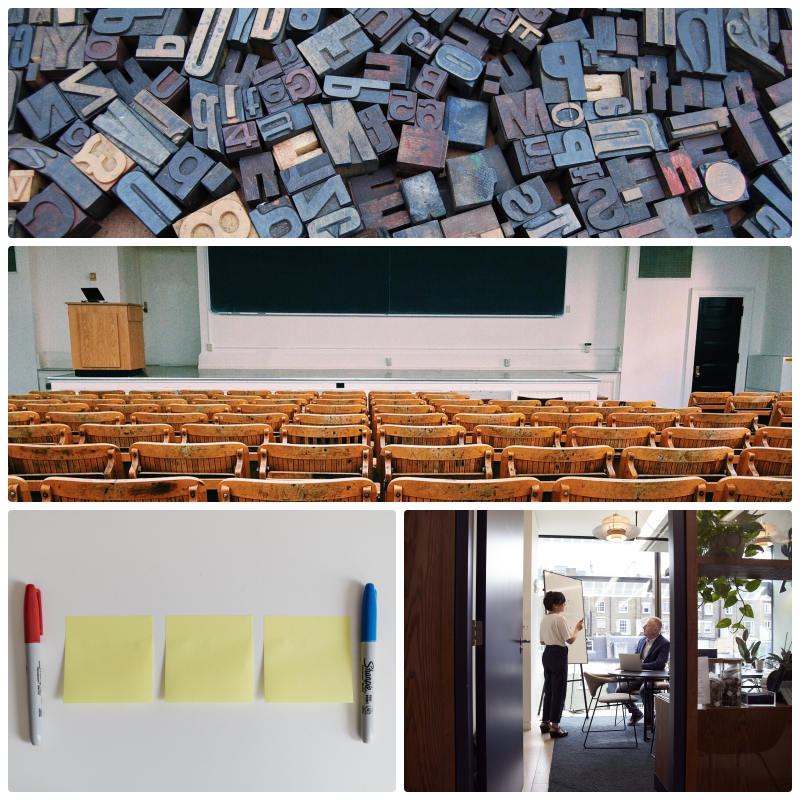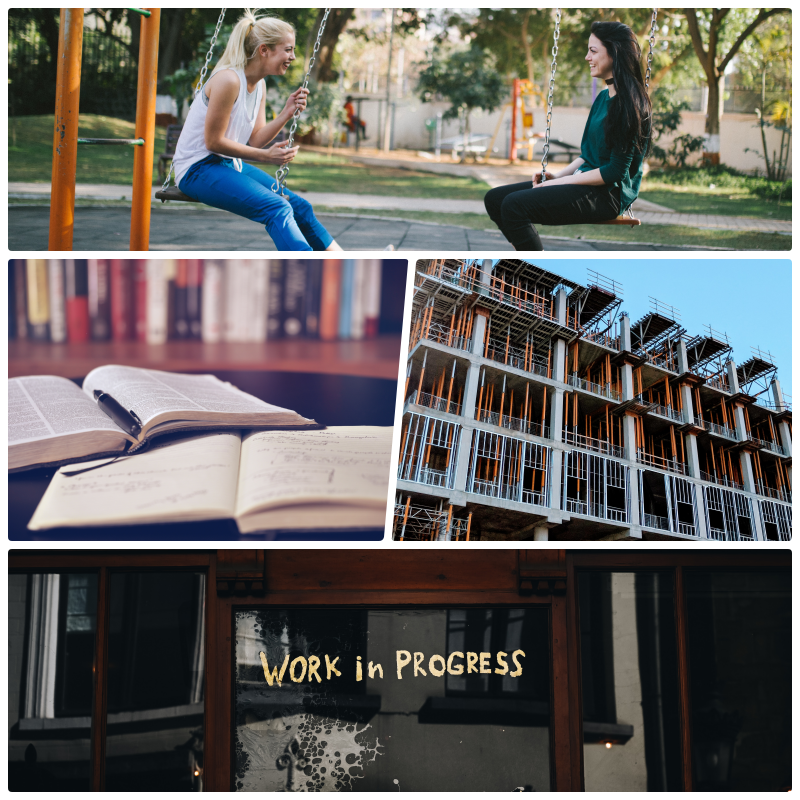Safe Spaces
One thing I realised quite quickly about Germany is that more people here like to maintain a healthy disconnect between their private and work lives than back in the U.K. It makes small talk tricky, but there is a logic to keeping some measure of distance between home and work, at least initially. Forming working relationships, even personal relationships seems to take longer here but they’re often some of the strongest I’ve ever made. What has often surprised me, given I’ve seen and experienced this difference many times, is how quickly people seem to share their personal lives with me. After only a couple of meetings, people will start opening up about their families or issues they have at work in a way they often don’t with their coworkers. Many times I’ve been running a workshop or taking a training session and German participants will suddenly share some intimate piece of themselves and it will stun their colleagues into silence. ‘I never knew that’ other participants will say before peppering the person sharing with a multitude of questions as if they had only just met rather than having worked together in the same team for five years.
I’ve wondered why people seem so comfortable sharing their personal lives with me, in obvious defiance of the cultural norm that keeps private lives and work lives in separate mental compartments. As much as I’d like to imagine that I emit some aura of trustworthiness or lull people into a sense of comfort due to my charming countenance, the reality is that most of the time these people are speaking English and not their native German. I suspect, although I have no proof, that the sheer terror of speaking English can short circuit people’s brains, bypassing any worries they have about sharing private information with someone they only met a few weeks ago. Obviously this “cheat code” for the minds and opinions of Germans is incredibly useful for training. A participant that is willing to share can be worth their weight in gold, especially if you have a group that finds it difficult to open up. One person sharing generally gives confidence to others to also share and before you know it groups are discussing their opinions on topics that they wouldn’t even comment on in previous sessions.
This willingness to share has to be reciprocated though, no one wants to discover they’ve shared a rather controversial opinion about the latest project only to be met with a wall of silence. That’s where my annoying habit of over-sharing comes in handy. I’m more than happy to talk about my private life, to my possible detriment. More often than not, groups I train for many years will know more about me than many of my friends, and these groups now have no fear about asking me for an opinion or even asking questions that skirt my boundaries of acceptable conversation. Despite the occasional overly personal question, I find this sudden desire to share a serious advantage to my work.
Yet, there is a rather large downside to this sharing malarky. In my desire to create a comfortable training environment, I’ve often found that sometimes participants assume that I share the same opinions and perspectives. This is the case when topics move to politics. My comfortable middle-class exterior seems to suggest to people that I’m far more conservative than I actually am. People are shocked to discover that I don’t think people are poor because they’re lazy or that I actually think taxes should be raised rather than lowered. This can lead to tricky conversations, but these are easily navigated as long as I don’t reveal exactly how much disdain I hold for their favoured political party or politician.
A more disturbing trend that I’ve noticed is that my exterior also seems to lull some people into a belief that I not only hold the same political views as them, but also the same prejudices. For example, I recently started an early morning session and was greeted with that not unusual sight of an empty virtual meeting room. I didn’t have to wait long for someone to join. I started off with some basic small talk, which suddenly led to the participant asking about where I lived. I replied that I lived in Augsburg, and asked if they had ever visited the city. It turned out they had, but as it transpired they didn’t enjoy their visit. ‘I didn’t feel safe’ they replied. Frankly I was mystified. Augsburg is about as safe a city as you will find in Germany, hell it’s located in Bavaria, a state that regularly sees the lowest crime statistics in the country. What exactly was so dangerous about leafy, generally affluent Augsburg. I wish I hadn’t asked. ‘There were many, sorry for this, but people with a migration background’. Jesus. It wasn’t even 08.45.
It turned out that for this participant, the mere presence of foreigners and specifically ‘black people’ was terrifying. If someone had suddenly joined the conversation, they might imagine that this participant was describing a trip to one of the world’s most dangerous cities and not the hipster embracing, gentrification loving, tree lined city which I happen to call home. In these moments, I usually double check that there isn’t some glaring language mistake being made, it wouldn’t be the first time someone in one of my sessions had said something racist by making a horrible error in phrasing or word choice. The conspiratorial tone and occasional throwaway apology for speaking directly suggested there was no misunderstanding what I was being told.
It’s quite shocking to discover how thin the veneer of decency is for some people. It has to be called out, but even calling the racist spade a racist spade is met with denial. No one is racist now it seems, even those who are the most racist. They’re just being honest, speaking their truth and how dare anyone attempt to tarnish them with the R-word. That’s cancel-culture don’t you know? Of course a lot of it ends up on social media, but there’s plenty more that never leaves the safe whitespaces. These are conversations that are happening all over the country, in offices, in beer gardens, at restaurant tables, but they are rarely heard openly. Safety in numbers, I guess.
In these moments, where I’m confronted by the naked racism that some feel is legitimate, I ask myself the question: is Germany racist? Well, I’m not exactly sure I’m the one to answer that, but I do have something to fall back on. James Baldwin, author, activist and electrifying public speaker created a way of thinking about racism that I often find myself using. He famously declared that he didn’t know what white people in America felt but he could only conclude how they felt from the state of their institutions. In the same vein, I can’t say how racist Germany is, but I do know that there are far too many people out there who feel far too comfortable sharing their racism with others for the simple reason that they look like them. It’s up to those of us who are in these privileged spaces to say something.
Image Credit
Photo by Mika Baumeister on Unsplash
Photo by Michael Dziedzic on Unsplash
Photo by Jason Leung on Unsplash
Photo by Michael Carruth on Unsplash









